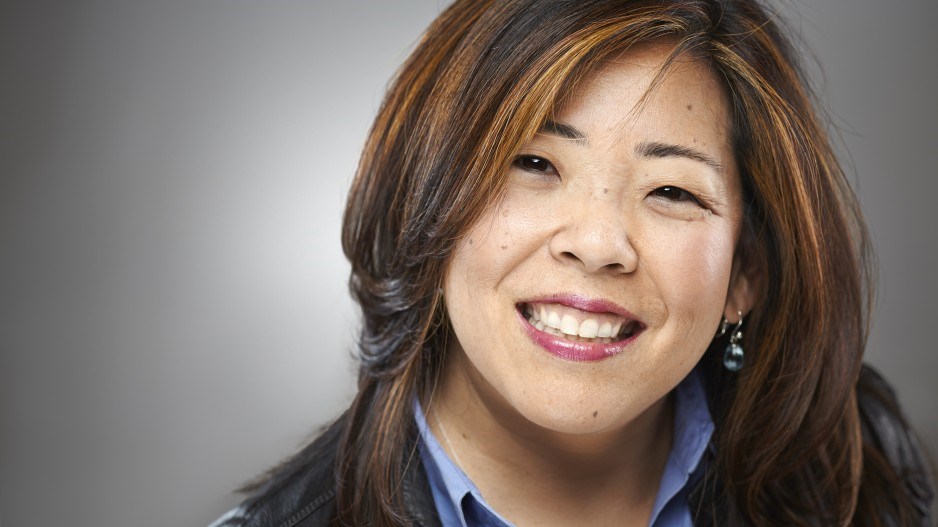By Renu Singh-Joseph
There are those in life who just know whatthey’re destined to do. This holds true for Sandy Tanaka, who not only knew shewanted to be an accountant, but has employed decades of knowledge, experienceand skill set to her current role as assistant dean and director of finance at theUniversity of British Columbia’s Sauder School of Business.
Q: When did you know that you wanted to bea professional accountant?
A: It sounds really nerdy, but I knew sinceGrade 10 that I wanted to become an accountant. Originally I wanted to be adentist and enrolled in science courses with my one elective course ofaccounting. I struggled with the sciences but excelled in accounting. Learningaccounting came really easy to me; it just made sense, and I really enjoyedcrunching numbers.
Q: You’ve worked at the University ofBritish Columbia (UBC) for 28 years. Can you tell us about your career journey?
A: In 1987, I applied to a job ad in thelocal paper to work at UBC’s accounts payable department. After multipleinterviews, I was hired as the new mail clerk. It was the most junior positionin the department, and my job was to open the mail and make sure every invoicehad three copies. Little did I know this was the start of something great forme.
Through the years, I continued myaccounting education and started to develop additional skills beyondaccounting. I came to realize that beyond the number crunching, I was good atstrategic planning, information technology, project and change management and humanresources and operations. I had great mentors along the way, and when there wasan opportunity for advancement, they took a chance on me and placed me into anentry-level accounting management role. I made sure they would never regretthey did, and, eventually, I elevated to my current role as Sauder’s assistant deanand director of finance.
Q: Why are chartered professional accountants(CPAs) beneficial to a business?
A: Being a chartered professional accountantis not about crunching numbers and balancing spreadsheets; it’s about knowinghow the business currently operates, where it’s going in the future, how tofinancially support it now and how to make it sustainable in the future.
Q: Can you share a few instances in which youraccounting background resulted in a success or achievement at UBC?
A: Much of what I have created withinSauder on the finance, budget and IT operations is a model that is being adoptedaround campus by other faculties. I have also done a lot of business processre-engineering with success in cutting costs and processing time in financialrequests. It is always rewarding to know you have been responsible in making apositive change, especially when others adopt what you have done.
I was a member of the project team thatmanaged Sauder’s $70 million building renovation project. And I have alsoparticipated in university steering and advisory committees for large-scale projectsand ongoing operations.
For the past three years, I was the chairof the Committee of Faculty Business Administrators, which represents the 12faculties on campus in finance and HR leadership. And this year, I am the chairof UBC’s 25 Year Club that recognizes and celebrates employees who have given25 years of service to the university.
Q: The CPA united the Canadian accountingprofession. Your thoughts?
A: Having one governing accountingdesignation provides clarity and ensures standards in accounting practices arebeing met. When a business hires a CPA, you know they have gone through arigorous training program and have the right skill set to meet your businessneeds.
Q: Can you tell us about the organizationsyou’re involved with?
I am very passionate about volunteering mytime. I spent five years volunteering for Leukemia and Lymphoma Society ofCanada and their fundraising arm called Team In Training. I am now working withCanadian Mental Health Association (CMHA) and PALS Autism Society, in which Isit on the Adult Program Advising Committee that provides support and servicesto young adults aged 19 to 28.
Q: You are the first recipient of Sauder’s2015 Graeme A.G. Stamp Community Project Award. Can you tell us about thisrecognition?
A: I lost a good friend, who suffered withmental health issues, so winning the award was special. I wanted to break someof the negative stigma around mental health and to raise awareness of theresources available. I also wanted to win so I could give the $2,500 award toCMHA.
Q: Looking back on your career?
A: I would never have had the career that I do if I weren’t a designated accountant. The university places a lot of emphasis on making sure you have the credentials to do the job. Having a CPA, CMA gave me credibility and opened up opportunities for me to advance.




